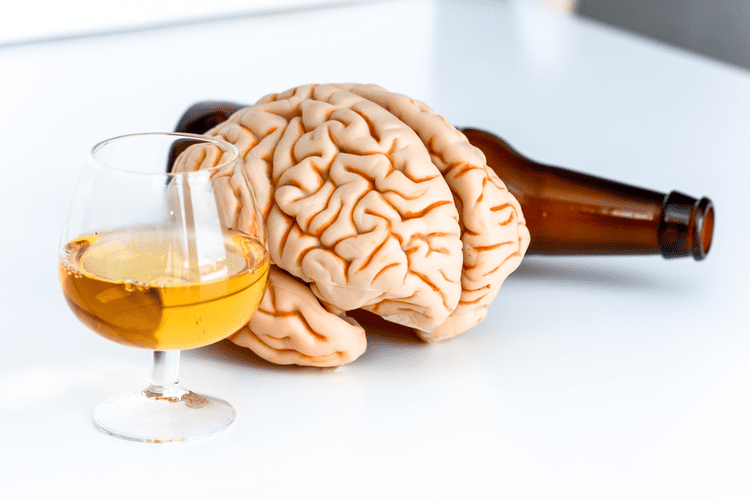Deficiency of vitamins other than thiamine may also contribute to clinical features of alcoholic neuropathy. Chronic alcoholism can alter the intake, absorption and utilization of various nutrients (nicotinic acid, vitamin B2, vitamin B6, vitamin B12, folate or vitamin E). Thus, these vitamin deficiencies were not considered to be major causal factors of neuropathy 26.

Although alcoholic neuropathy causes damage to the peripheral nerves, these nerves mainly supply the limbs, hence they are affected the most. Many people experiencing alcoholic neuropathy may show muscle weakness, affected functioning of the muscles and even cause loss of muscle mass or muscle atrophy. The prognosis for alcoholic neuropathy depends on various factors, including the extent of nerve damage and the individual’s commitment to avoiding alcohol and adhering to treatment plans. Some individuals may experience significant improvement in symptoms within weeks to months, especially with early intervention and consistent treatment. However, for others, especially those with severe or long-standing neuropathy, some symptoms may persist indefinitely. Long-term management focuses on symptom relief, preventing further nerve damage, and maintaining a healthy lifestyle to support nerve function.

It is essential to provide patient education regarding the harmful, long-term consequences of alcohol abuse. Referral to a alcoholism neuropathy behavioral health addiction facility may be required to treat alcohol addiction. If you’re struggling to control your drinking and worried about alcoholic neuropathy, help is available. For a list of rehabs and treatment centers near you, visit our rehab directory.
Initially, symptoms might include tingling, numbness, or a burning sensation in the extremities, particularly the feet and hands. As the condition progresses, these sensations can lead to pain, muscle weakness, and even muscle atrophy. The nerve damage can also affect autonomic functions, leading to problems with blood pressure regulation, bowel Sobriety and bladder control, and sexual function. These physical symptoms, combined with the psychological impact of chronic pain and mobility issues, can lead to depression, anxiety, and social withdrawal, further diminishing life quality. In one clinical study, aimed at studying distinct clinicopathologic features of alcoholic neuropathy, 64 patients were assessed. In 47 of these patients sural nerve biopsy was performed, with discrimination in terms of their thiamine status 3.
Excessive alcohol consumption has been linked to several vitamin deficiencies and preventable health conditions. Alcohol also has toxic effects on the nerves, making them more susceptible to damage. In some cases, neuropathy develops due to vitamin toxicity, which is when you take in much more of a vitamin than your body needs. As yet there is no effective therapeutic intervention available for relieving the neuropathic pain due to chronic alcohol consumption.

Yes, alcohol addiction treatment helps with managing and improving alcoholic neuropathy. Sustained abstinence from alcohol prevents further nerve damage and creates the conditions necessary for healing. Alcohol Addiction Treatment programs address both the root cause, chronic alcohol use, and the resulting complications by combining medical care, nutritional therapy, and physical rehabilitation. Alcoholic neuropathy is a serious and overlooked complication of chronic alcohol misuse that affects the peripheral nerves, leading to symptoms like pain, tingling, weakness, and muscle wasting. Alcoholic Neuropathy is a condition characterized by nerve damage resulting from chronic and excessive alcohol consumption. It primarily affects https://kapuas69.com/bookkeeping-services-orlando-bookkeeper-palm-beach/ the peripheral nerves, leading to symptoms such as numbness, tingling, pain, and muscle weakness, typically in the limbs.
Pain seems consistent in the literature as 1 of the most common complaints and can be the first clinical indication of the disease. Keeping this disease process high on the differential with the right history is essential. Progression of the disease leads to symmetrical ascending motor and sensory deficits.
Introduction As a seasoned online casino player with 15 years of experience, I have come across numerous platforms offering deposit-free play. In this article, I
Introduction When it comes to online gambling, live slots have become increasingly popular among players. With the advancement of technology, players can now enjoy the
Топ доверенных казино с быстрыми выплатами В процессе нахождении безопасного игорного заведения с моментальными выплатами важно рассматривать ряд важных аспектов. Прежде всего, обратите внимание на
¿Sentís la pasión por el básquet? ¿Querés ser parte de algo más grande que un simple partido? En el Club Marne, no solo somos un equipo, ¡somos una familia!
Al hacerte socio, no solo estás apoyando a nuestros jugadores a alcanzar nuevas alturas, sino que te convertís en una pieza fundamental de nuestra historia. Cada socio nos ayuda a seguir creciendo, a mejorar nuestras instalaciones y a formar a las futuras estrellas del básquet.
¡No te quedes afuera! Sumate y disfrutá , viví la emoción de cada encuentro desde adentro y sentí el orgullo de ser parte de nuestra comunidad.
Hacete socio hoy y sé protagonista de la grandeza del Club Marne. ¡Tu aliento es nuestro mayor impulso!